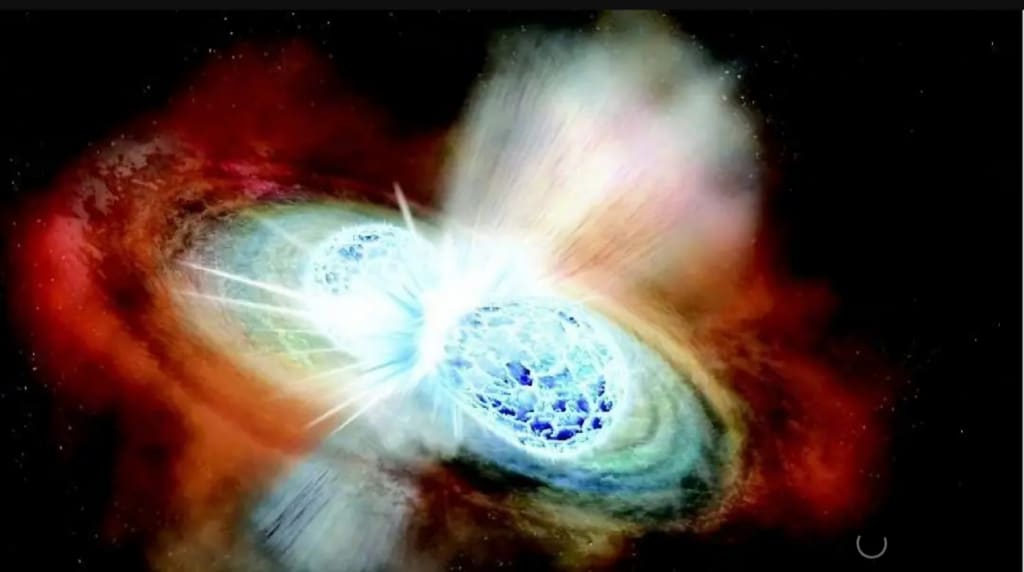A Decade of Discovery: Unveiling the Mysteries of the Universe
Amazing scientific discoveries throught out the decades

### A Decade of Discovery: Unveiling the Mysteries of the Universe
The last decade has been one of the richest periods of scientific discovery in history. Researchers across all disciplines have tested hypotheses, found proofs, and visited places that have reshaped our understanding of not only our own planet but of the entire universe. This was the decade when we began to confront one of humanity's greatest challenges and learned more than ever before about some of the most destructive objects in existence. Let’s delve into five of the most remarkable scientific discoveries of the 2010s.
#### 1. Pluto's Dynamic Landscape
Despite being reclassified from a planet to a dwarf planet in 2006, Pluto has remained a source of fascination. That same year, NASA launched the New Horizons spacecraft with the mission to explore this distant world. After a nine-year journey, New Horizons reached Pluto in July 2015, and the images and data sent back were astonishing. Far from being a dull, frozen rock, Pluto was revealed to have a surprisingly dynamic landscape.
Scientists discovered moving glaciers, towering ice mountains, and a vast frozen sea composed of solid nitrogen. These ice formations are constantly shifting, albeit slowly, due to the warming pressure exerted from above, which causes the ice to rise and replenish the surface continually. This active geology was completely unexpected and provided new insights into the behavior of celestial bodies in the outer reaches of our solar system.
#### 2. The Discovery of the Higgs Boson
The discovery of the Higgs boson was a monumental achievement in physics, confirming a key component of the Standard Model. This elusive particle, also known as the "God particle," was first theorized in 1964 but remained unobserved for decades. It wasn't until the construction of the Large Hadron Collider (LHC) at CERN in Switzerland, the world's largest and most powerful particle accelerator, that the Higgs boson was finally detected in 2012.
The Higgs boson is crucial because it explains why particles have mass. According to the Standard Model, the Higgs field gives mass to elementary particles through their interactions with the Higgs boson. This discovery not only validated the Standard Model but also opened new avenues for exploring the fundamental forces and particles that constitute the universe.
#### 3. The Kepler Mission and Exoplanet Discovery
For millennia, humans have gazed at the stars, wondering what lies beyond our solar system. The launch of the Kepler space telescope in 2009 marked a significant milestone in the search for exoplanets—planets orbiting stars outside our solar system. By measuring the minute dimming of stars as planets passed in front of them, Kepler was able to identify thousands of exoplanets.
By the end of the decade, Kepler had discovered more than 4,055 exoplanets, including several that are potentially habitable. This unprecedented number of findings has revolutionized our understanding of the galaxy and suggested that planets are far more common than previously thought. This discovery hints at the possibility that our solar system is not unique and that potentially habitable worlds may be abundant throughout the universe.
#### 4. Understanding Climate Change
The Earth's climate has always been subject to change, but recent shifts are largely attributed to human activity. Over the past decade, the effects of climate change have become more apparent and alarming. In 2012 alone, Greenland lost 400 billion tons of ice, and Antarctica lost 252 billion tons annually throughout the decade. These losses are nearly six times greater than the ice loss experienced just 30 years earlier.
This accelerated melting has dire consequences for global sea levels, which are projected to rise by three feet by 2100. Such an increase would directly affect at least 630 million people living in coastal areas. Beyond human displacement, climate change poses a threat to biodiversity, with 40% of amphibian species, over 33% of marine mammals, and 10% of insect species facing the risk of extinction. The last decade has brought the severity of climate change into sharp focus, underscoring the urgent need for solutions to mitigate its impacts.
#### 5. Unraveling the Mysteries of Black Holes
Black holes have long been some of the most enigmatic objects in the universe. Formed from the remnants of massive stars that have collapsed under their own gravity, black holes possess an intense gravitational pull that prevents even light from escaping. The last decade saw significant advances in our understanding of these cosmic phenomena.
In 2016, the collision of two black holes was detected for the first time, confirming a prediction made by Einstein a century earlier. This collision produced gravitational waves—ripples in the fabric of spacetime. This groundbreaking discovery was followed in 2019 by the first-ever image of a black hole, captured by the Event Horizon Telescope. This massive black hole resides in the center of the Messier 87 galaxy, approximately 54 million light-years away, with a mass equivalent to 6.5 billion suns.
These discoveries have provided invaluable insights into the nature of black holes and their role in the universe. It is now believed that supermassive black holes exist at the center of most galaxies, influencing the motion of stars and the structure of the cosmos.
### Looking Ahead
The 2010s were an extraordinary decade for scientific discovery. From the dynamic surface of Pluto to the elusive Higgs boson, the detection of countless exoplanets, the stark realities of climate change, and the deep mysteries of black holes, we have learned much about our world and the universe. As we move forward, these discoveries not only expand our knowledge but also inspire us to continue exploring and understanding the cosmos. The next decade promises even more breakthroughs and insights, as humanity's quest for knowledge continues
About the Creator
Enjoyed the story? Support the Creator.
Subscribe for free to receive all their stories in your feed. You could also pledge your support or give them a one-off tip, letting them know you appreciate their work.





Comments
There are no comments for this story
Be the first to respond and start the conversation.